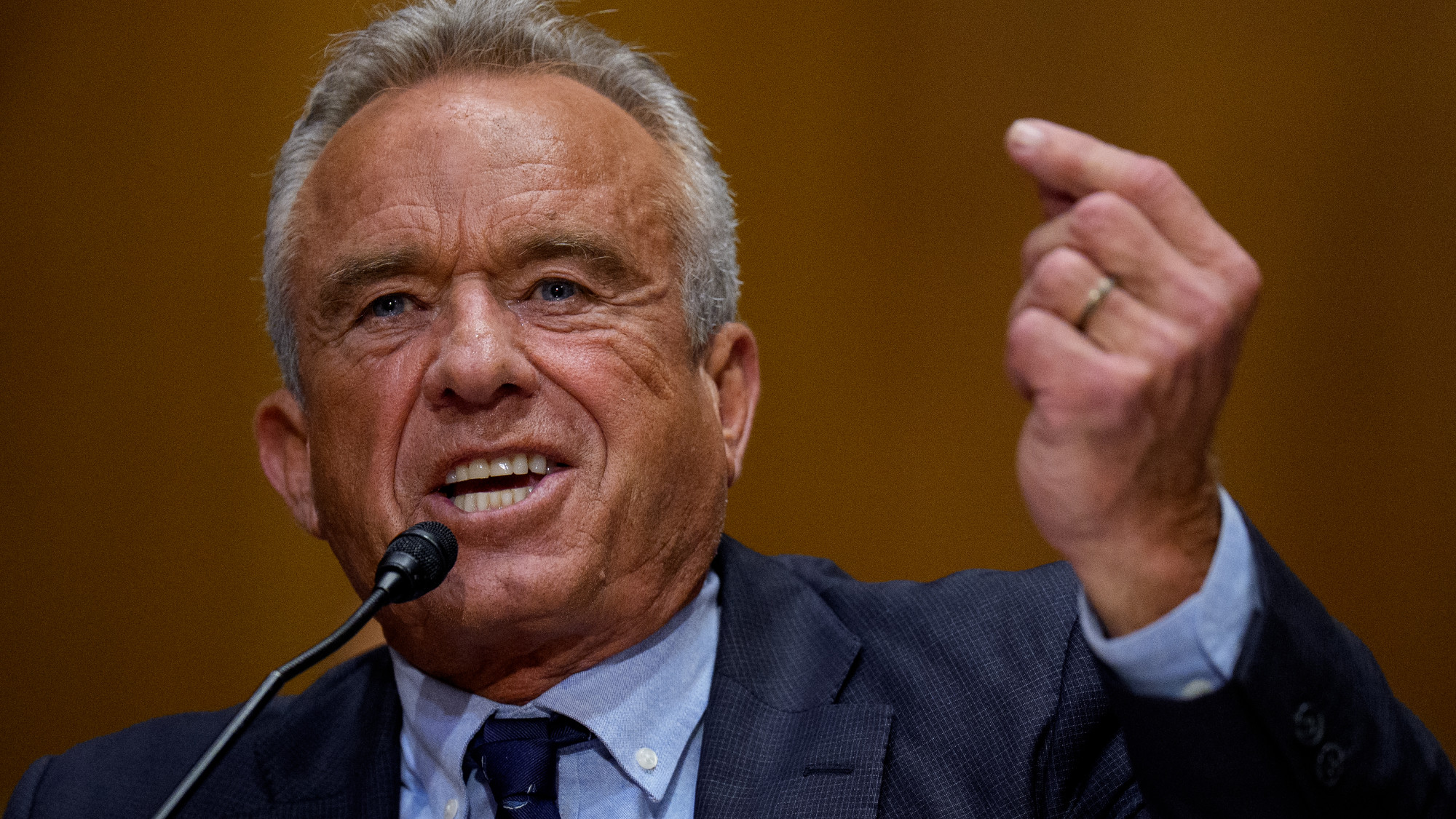Government accused of ‘flawed decisions’ based on ‘misleading’ Covid data
Ministers could have made ‘very different decisions’ with accurate figures, says scientist

Tory MPs have accused the government of making “flawed decisions based on misleading data” after new figures revealed one in four patients classed as a Covid hospitalisation were admitted for other reasons.
Updated NHS data shows that a significant number of patients classified as Covid-19 admissions had another primary cause of hospitalisation. Of the 5,021 patients who were this week listed as being hospitalised by Covid, 1,166 were admitted for other reasons.
This is data that has “regularly been referred to by ministers and at Downing Street briefings”, The Telegraph says, with “hospital pressures” caused by coronavirus admissions “frequently cited as a reason to retain restrictions”.
The Week
Escape your echo chamber. Get the facts behind the news, plus analysis from multiple perspectives.

Sign up for The Week's Free Newsletters
From our morning news briefing to a weekly Good News Newsletter, get the best of The Week delivered directly to your inbox.
From our morning news briefing to a weekly Good News Newsletter, get the best of The Week delivered directly to your inbox.
One leading scientist has said the government might have made “very different decisions about restrictions” had it had access to data “which actually measured the situation accurately”.
Professor Carl Heneghan, director of the Centre for Evidence-Based Medicine at the University of Oxford, said: “This data shows that, for the last month, around one in four Covid hospital cases were admitted primarily for another reason.
“At the peak of the pandemic in January, we were talking about close to 40,000 patients in hospital – this new data suggests that back then around 10,000 of them were primarily there for other reasons.”
Former Tory leader Sir Iain Duncan Smith added that the new figures show NHS data collection had been “really poor”, leading to ministers “too often sitting on misleading data, which often leads to flawed decision-making.
A free daily email with the biggest news stories of the day – and the best features from TheWeek.com
“It really does not speak well that they have not been forthcoming in what the real figures are. These figures will be having a direct impact on some of the decisions that have been made and are being made.”
Sir Graham Brady, chairman of the 1922 committe of Tory backbenchers, was another to bemoan the lack thus far of timely data. It was, he said, “frustrating and ridiculous that this was not available months and months ago”.
Earlier this week an analysis of leaked NHS data by The Telegraph found that more than half of patients classed as Covid hospitalisations tested positive only after admission, with the figures suggesting that “large numbers of patients” were being categorised as Covid patients when it was “not the primary cause” of their admission.
The analysis prompted calls for health officials to “urgently” publish data that distinguished between primary Covid admissions and those who were infected during their hospital stay, figures that have now been released by NHS England.
While hawkish Tory ministers may wish the country had opened up more quickly, Boris Johnson has remained resolute that the delay to the UK’s unlocking meant more people were vaccinated before restrictions were almost completely removed.
An estimated 60,000 lives have been saved and 22 million Covid-19 infections have been prevented by the UK’s rapid vaccine rollout, according to figures released by Public Health England. The data also suggests more than 52,000 hospital admissions have also been prevented.
And ministers keen to leave all restrictions behind may be out of step with public opinion regardless of the revised NHS figures, a new poll from Politico suggests, with almost half of the public believing restrictions were lifted “too soon”.
In a poll of 1,500 people, 46% of respondents said it was “too soon” to lift restrictions entirely, compared to 33% who thought it was the right time. Only 12% said it was “too late” and that restrictions should have been eased earlier. The findings suggest that “Brits largely remain wary of the virus” and will continue to take “a number of precautions whether required by law or not”, the site says.
Sorcha Bradley is a writer at The Week and a regular on “The Week Unwrapped” podcast. She worked at The Week magazine for a year and a half before taking up her current role with the digital team, where she mostly covers UK current affairs and politics. Before joining The Week, Sorcha worked at slow-news start-up Tortoise Media. She has also written for Sky News, The Sunday Times, the London Evening Standard and Grazia magazine, among other publications. She has a master’s in newspaper journalism from City, University of London, where she specialised in political journalism.
-
 Why quitting your job is so difficult in Japan
Why quitting your job is so difficult in JapanUnder the Radar Reluctance to change job and rise of ‘proxy quitters’ is a reaction to Japan’s ‘rigid’ labour market – but there are signs of change
-
 Gavin Newsom and Dr. Oz feud over fraud allegations
Gavin Newsom and Dr. Oz feud over fraud allegationsIn the Spotlight Newsom called Oz’s behavior ‘baseless and racist’
-
 ‘Admin night’: the TikTok trend turning paperwork into a party
‘Admin night’: the TikTok trend turning paperwork into a partyThe Explainer Grab your friends and make a night of tackling the most boring tasks
-
 Childhood vaccines: RFK Jr. escalates his war
Childhood vaccines: RFK Jr. escalates his warFeature The health secretary cut the number of recommended childhood vaccines from 17 to 11
-
 The high street: Britain’s next political battleground?
The high street: Britain’s next political battleground?In the Spotlight Mass closure of shops and influx of organised crime are fuelling voter anger, and offer an opening for Reform UK
-
 Is a Reform-Tory pact becoming more likely?
Is a Reform-Tory pact becoming more likely?Today’s Big Question Nigel Farage’s party is ahead in the polls but still falls well short of a Commons majority, while Conservatives are still losing MPs to Reform
-
 Taking the low road: why the SNP is still standing strong
Taking the low road: why the SNP is still standing strongTalking Point Party is on track for a fifth consecutive victory in May’s Holyrood election, despite controversies and plummeting support
-
 RFK Jr.’s anti-vaccine crusade comes under fire
RFK Jr.’s anti-vaccine crusade comes under fireFeature Robert F. Kennedy Jr. faced a heated hearing as senators accused him of lying and spreading chaos
-
 Hostile architecture is 'hostile — to everybody'
Hostile architecture is 'hostile — to everybody'Instant Opinion Opinion, comment and editorials of the day
-
 RFK Jr. faces bipartisan heat in Senate hearing
RFK Jr. faces bipartisan heat in Senate hearingSpeed Read The health secretary defended his leadership amid CDC turmoil and deflected questions about the restricted availability of vaccines
-
 Florida aims to end all state vaccine requirements
Florida aims to end all state vaccine requirementsSpeed Read Health Secretary Robert F. Kennedy Jr. continues to cut vaccine access and install anti-vaccine activists at the FDA and CDC